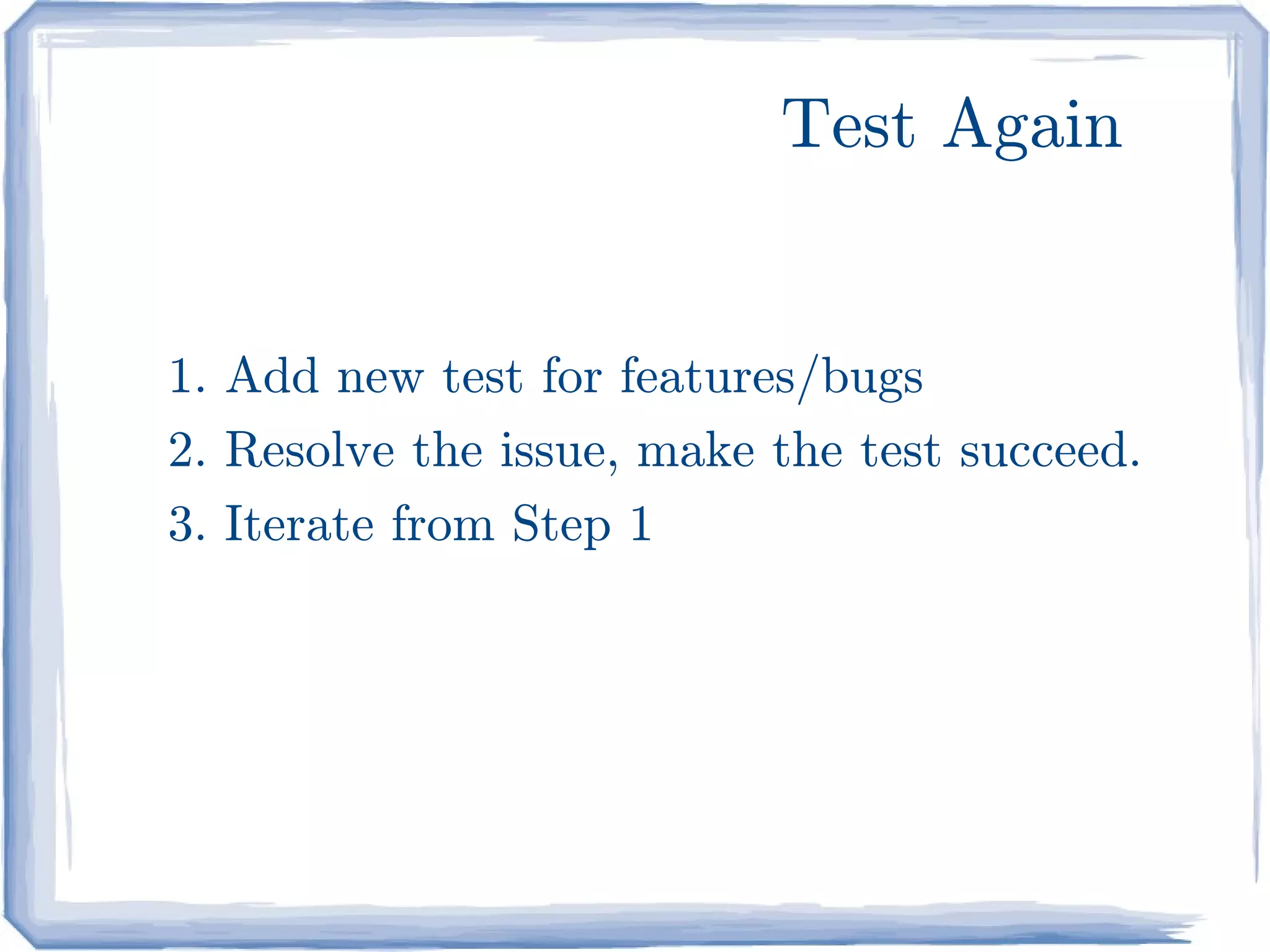This document discusses test driven development (TDD) in Python. It explains that TDD involves first writing tests for a use case, running the tests to ensure they fail, writing just enough code to pass the tests, and then repeating the process of writing tests and implementing code. The document provides an example of writing unit tests in Python using the unittest module and shows how to test a "Greater" class that compares values. It emphasizes that TDD results in code with fewer bugs and that is more modular and extensible.

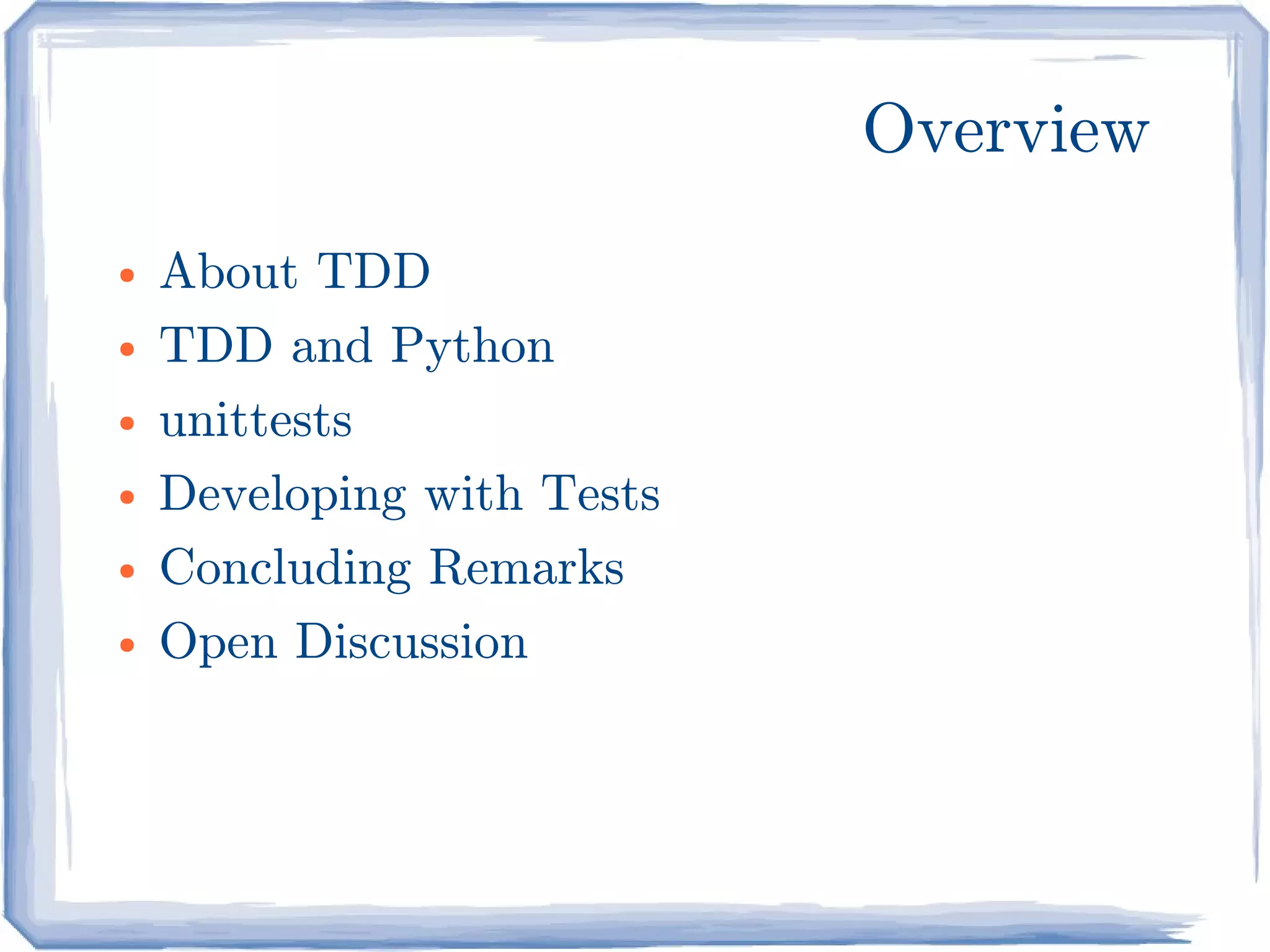

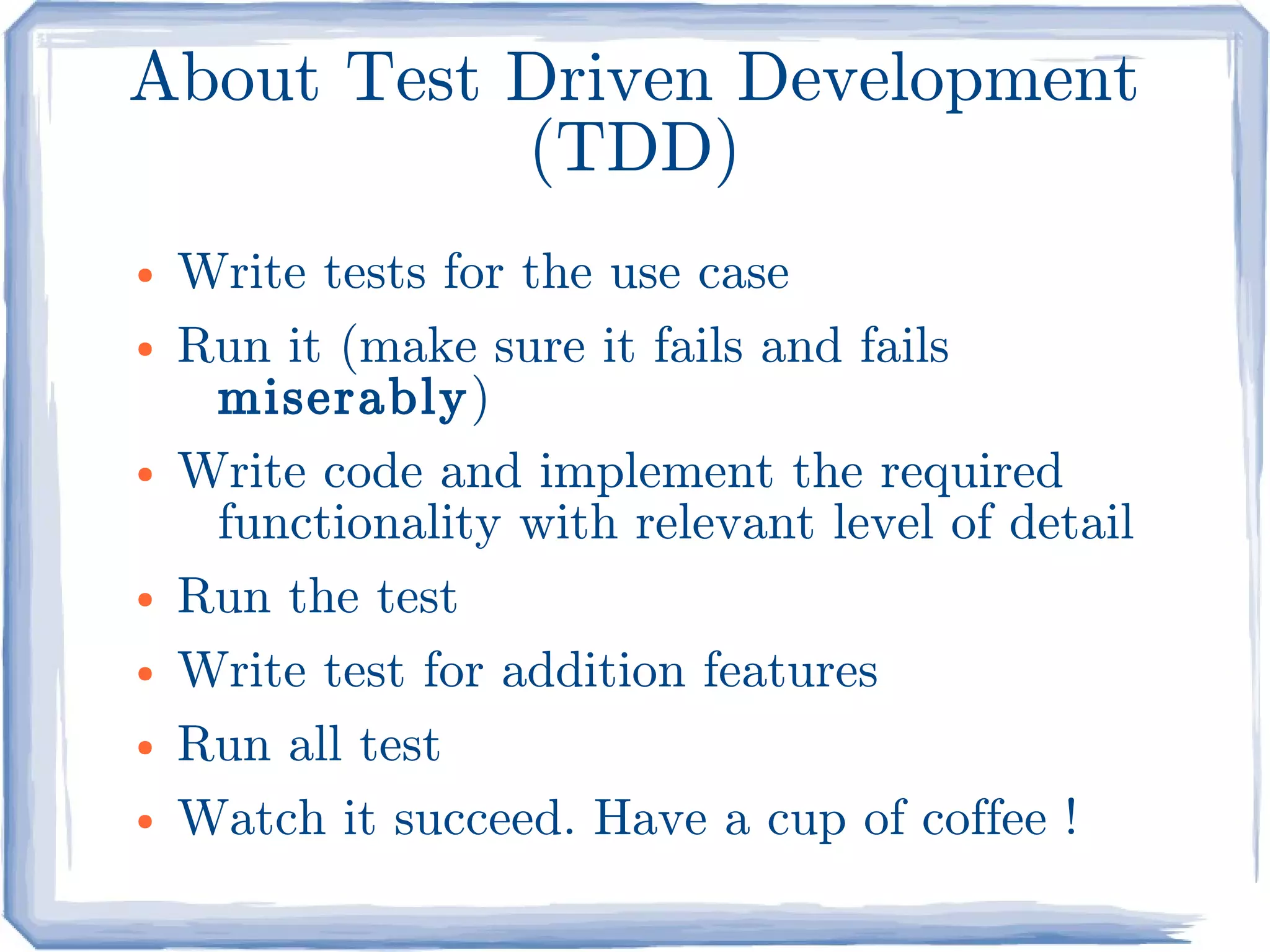
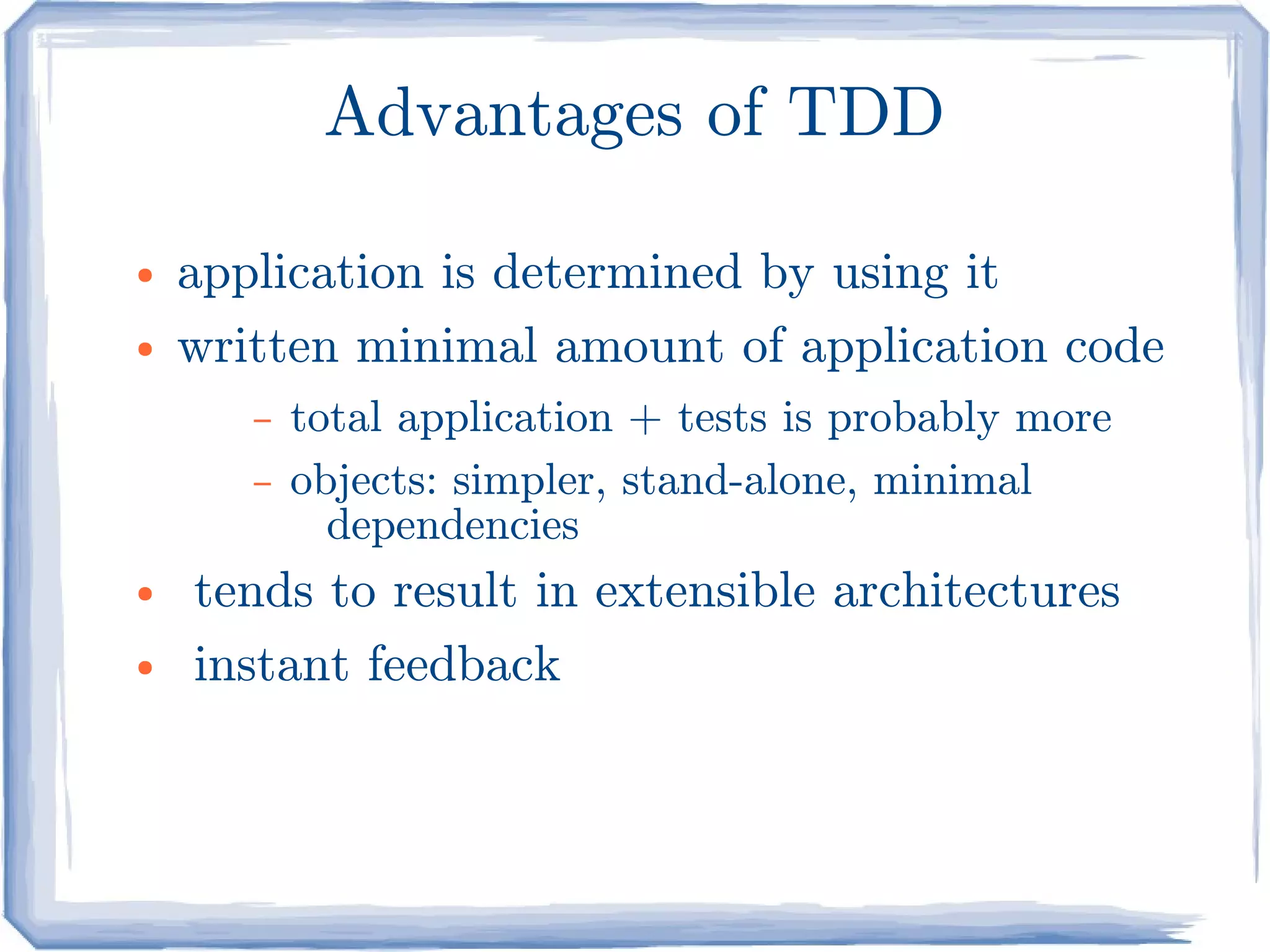
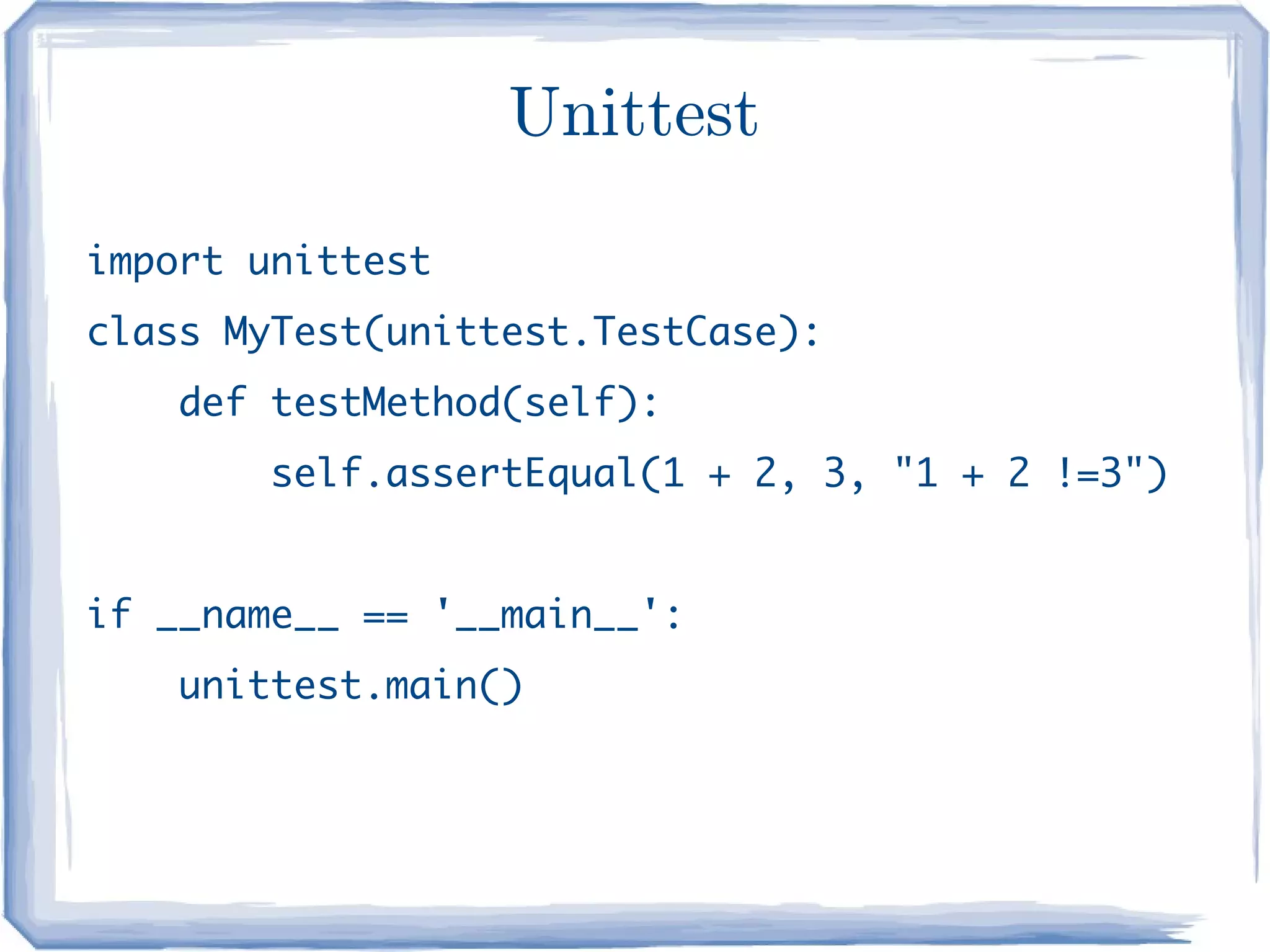
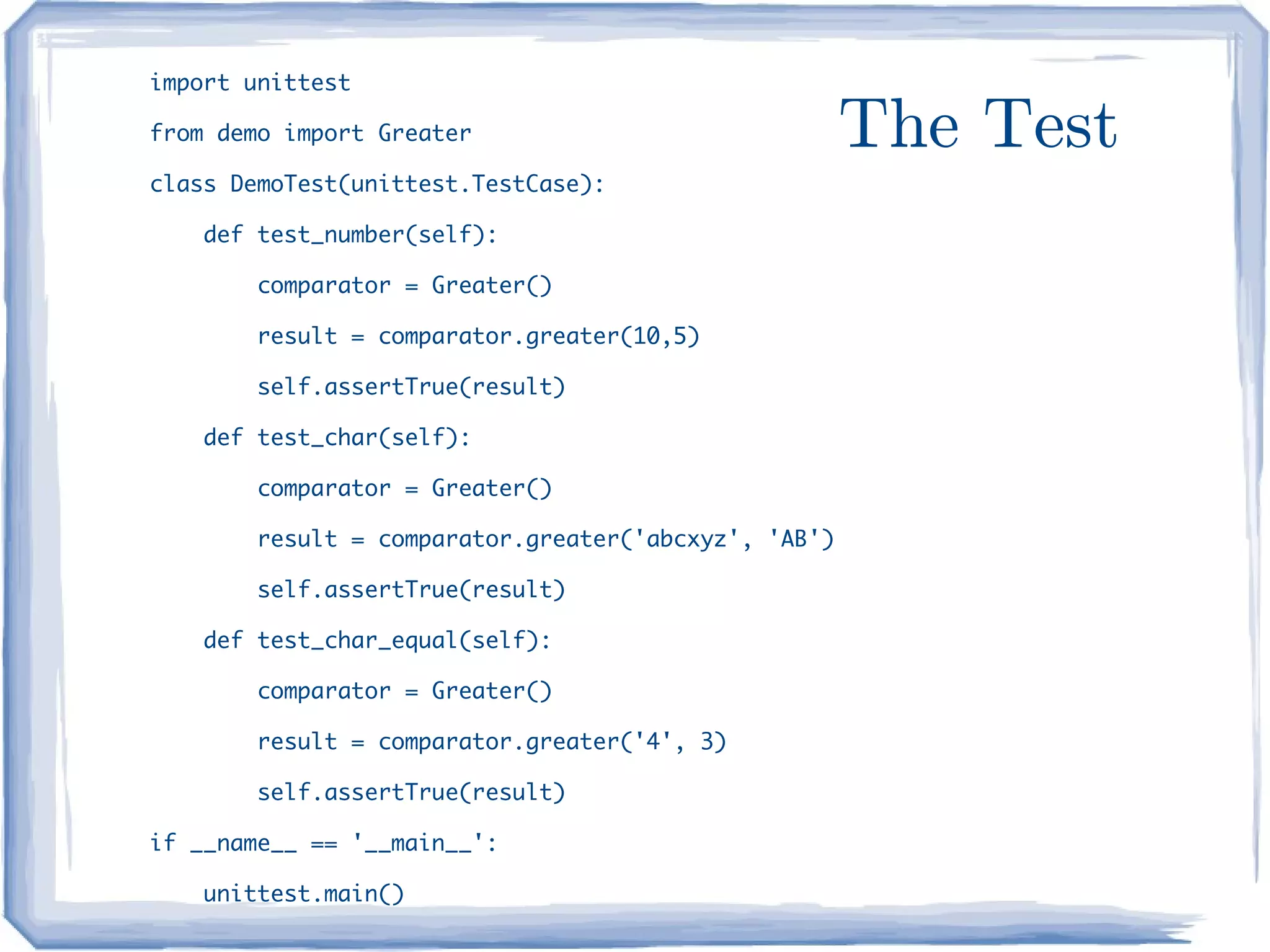
![class Greater(object):
The Program
def greater(self, val1, val2):
if type(val1) ==str or type(val2) == str:
val1 = str(val1)
val2 = str(val2)
sum1 = sum([ord(i) for i in val1])
sum2 = sum([ord(i) for i in val2])
if sum1 > sum2:
return True
else:
return False
if val1>val2:
return True
else:
return False](https://image.slidesharecdn.com/tddatm-120417192640-phpapp01/75/Test-Driven-Development-in-Python-8-2048.jpg)
